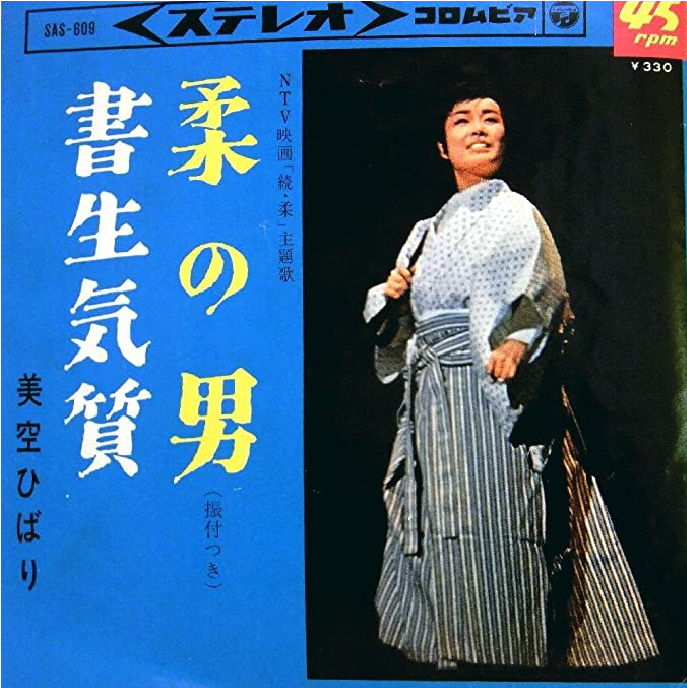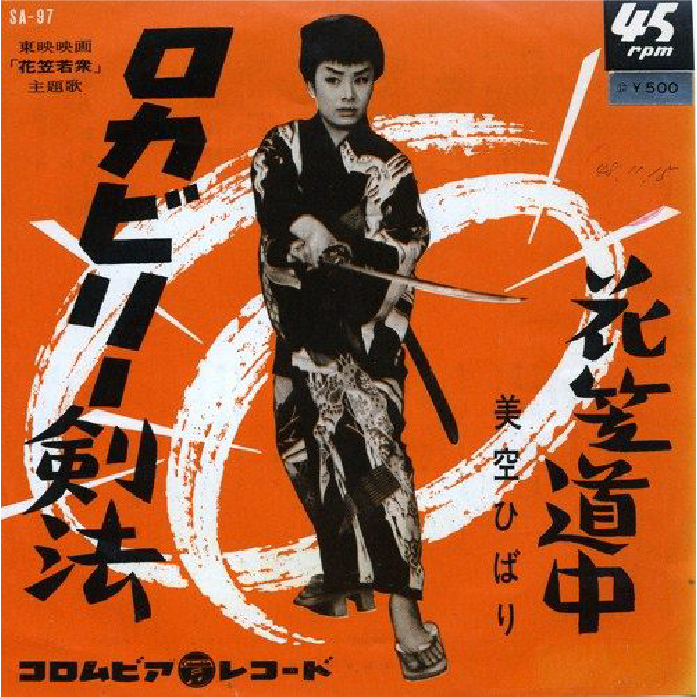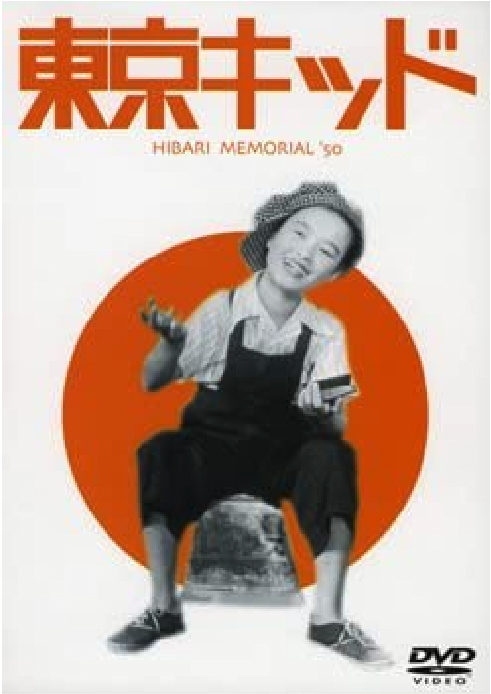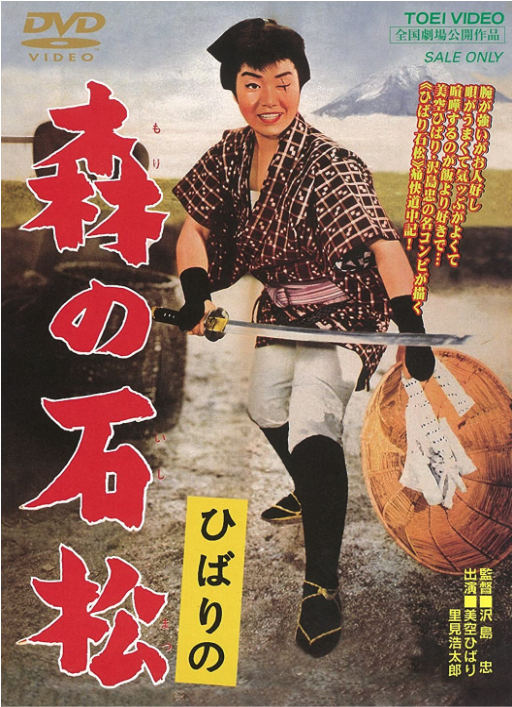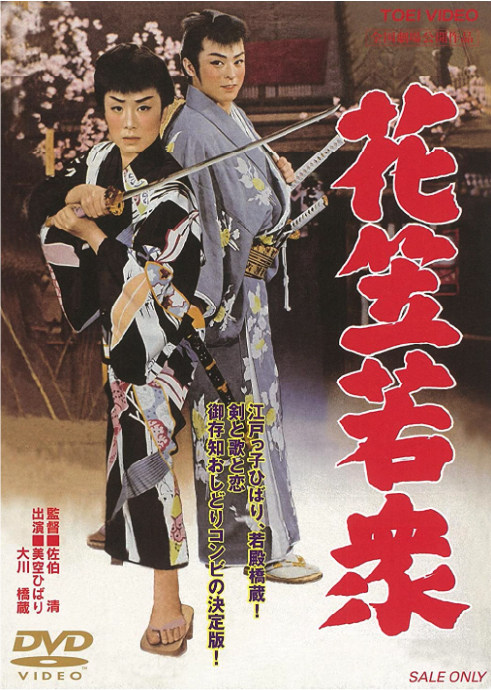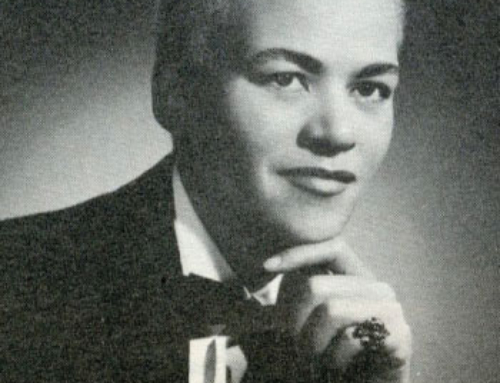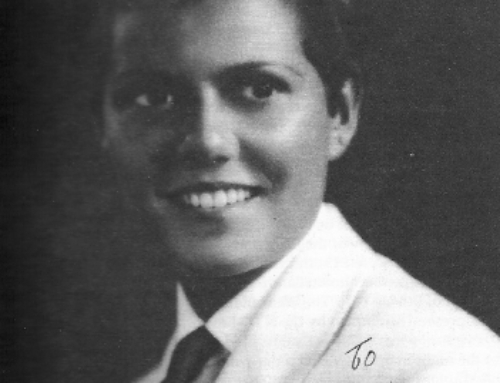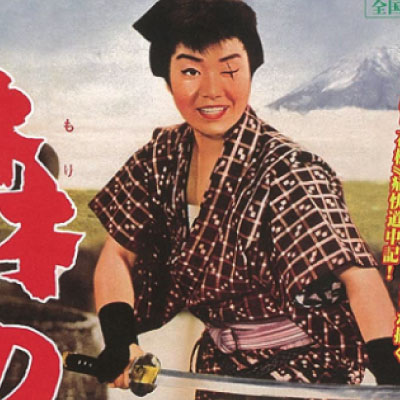
Years active
1943-1989
Stage Name(s)
MISORA Hibari
Category
Male Impersonator
Country of Origin
Japan
Birth – Death
1937-1989
Bio
MISORA Hibari (美空ひばり) was a singer and actress who symbolized the post-war era of Japan. During her career spanning over 40 years, she recorded 1500 songs including 517 original songs. Her first performance acting as a boy was in the movie “Tokyo Kid” (東京キッド) in 1950 when she was 13 years old.(1) She repeatedly performed in men’s attire throughout her career though this form of expression was not the bulk of her performances.
Born on May 29th, 1937 in the port city Yokohama, Kanagawa, Hibari had a deep, strong bond with her mother KATO Kimie (加藤喜美枝) . It was Kimie who brought up the idea that Hibari would look great in men’s clothing. (2) Hibari’s father, KATO Masukichi (加藤増吉), was a fishmonger who enjoyed singing while selling fish.(3) In 1943, Masukichi was forcibly drafted to Yokosuka naval forces. At the navy send off party, Hibari sang “Kudan no Haha” (九段の母), a song of a mother who prays at Yasukuni shinto shrine for her son who died in the war. The 6 year old singer impressed listeners and this became the beginning of her singing career. Hibari consoled people under the war with her songs while her mother Kimie was always on her side as a producer.
In 1956, at the age of 19, she was engaged to ONO Mitsuru, a bassist who taught jazz to Hibari. If she married Mitsuru, Hibari was told that she must quit singing to become a housewife, so she broke off the engagement. (4)
Nineteen year old Hibari was so popular that a maniacal fangirl attacked her by throwing acid on her face. Fortunately, Kimie immediately stepped in with a bucket of water which only left a minor injury. In her diary, the attacker wrote that “I am crazy for Hibari, her beautiful face makes me want to hurt her. I want to attack her with acid to see her face turn ugly by my act.” (5) The fangirl was arrested needless to say.
Broken engagement, pressure to be a housewife, acid attack… none of these stopped Hibari. In 1958, she performed various acts including two in men’s attire, in the play, “Izumo no Okuni” (出雲の阿国) and in the film, “Hanagasa Wakashu” (花笠若衆), and Kimie was the original writer of “Hanagasa Wakashu” (花笠若衆). By 1961, Hibari was a huge success selling over 5 million records.
In 1962, Hibari married the singer, KOBAYASHI Akira, and they divorced in 1964. Kimie said that she was “unhappy when Hibari was married, and became happy after Hibari was divorced”.(6) At the end of that year, Hibari performed an original song “Yawara” (柔) in men’s kimono and sold over 1.8 million records. 1964 was the first year that Judo (柔道) was introduced as an Olympic sport at the Tokyo 1964 Games. At the time Judo was exclusively for men, Hibari performed a song of Judo in men’s kimono.
In 1981, Hibari lost her mother Kimie. In deep agony and loneliness, Hibari could not stop drinking alcohol like the lyrics of her original song “Kanashii Sake” (悲しい酒) which means “Sad Sake”. Hibari drank at gay bars in Tokyo, and to avoid unwanted attention, Hibari wore men’s suits and sunglasses while there. One of the bartenders, WAKAYANAGI Yukinojo (若柳雪之丞), says that Hibari said she “wanted to be born as a man”(7).
Hospitalized for chronic hepatitis, Hibari told her friend NAKAMURA Meiko (中村メイコ) that “After my mother died, I am the boss, the most authoritative. So if I say that I want alcohol, everybody obey me, nobody will stop me. You are fortunate for having someone who stops you.”(8)
Even though she definitely needed a rest, Hibari had not stopped singing, and had been harassed by paparazzis. On May 27th, 1989, she published a tanka (Japanese short poem) -styled message;
“麦畑、ひばりが一羽飛び立ちて……その鳥撃つな村人よ”
Mugibatake, Hibari ga ichi wa tobi tachite… Sono tori utsu na murabito yo
This translates as:
From the barley field, a beverly is just flying high up.
Don’t shoot it, villagers.
Her stage name MISORA Hibari literally means “Beverly in the Beautiful Sky”. On June 24th, 1989, a rainy day Tokyo, Hibari stopped breathing and flew high up in the sky. After she passed away, Hibari became the first woman who won a National Honor Prize.
(Submitted by: Asako MAKIMURA aka Kinky Kabuky from Kanagawa, Japan)

